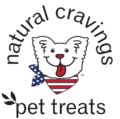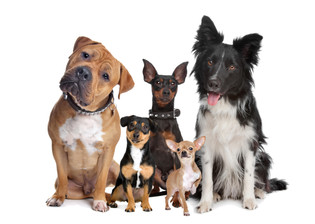THE ULTIMATE CHECKLIST FOR ADOPTING A DOG
When it comes to adding a new family member to your home, it can be a lot of fun but also a lot of stress. For parents, it will feel like babyproofing their house all over again. For first-time pet owners, it can sound overwhelming.
That’s precisely why we have this nifty little checklist for you that covers all the basics. That way, you can worry less and find your new best friend faster.

Where Can You Find a Dog to Adopt?
There are a few different places that you can look for a new dog to join your family. The two main options are rescues and shelters. And yes, there’s a difference.
Related: June is National Foster a Dog Month
Shelter
Your local town or city most likely has one. These are the poor dogs that are either found without homes or given up. Often dogs are given to the shelter because they get too big, or the family didn’t have time for their pup. Some may have bad behavior or two, but overall these dogs are just looking for their forever home.
Rescue
Most often, these are more specific than shelters. Places like Greyhounds Only will only take and work with Greyhound dogs. And there are many different rescues for all different breeds. Adopting a dog from a rescue is a great option when you are looking for a specific type of dog.
Both types of places have plenty of dogs that would love to come home with you! They normally offer resources as well to help with the adoption and aftercare of your new best friend.

Pre-Adoption Checklist
While some places have more specific requirements for adopting special needs dogs, like those that are retired military dogs, most of the requirements are easy enough to check off.
- Pass a Home Visit. This may require a fenced-in yard or other specifics, and they often tell you before the visit what their specific requirements are.
- Most places require you to be at least 18 years old to adopt a dog.
- You’ll need a valid ID.
- First introduction. Many adoption agencies will want you and any family members to meet the dog first beforehand to make sure it’s an excellent fit.
- Adoption fee. This can range depending on the dog and the facility, but it’s much cheaper than buying a puppy.
- If you are renting, you may also need a copy of your current lease.
Are you looking for a great treat for your dog? One that is all-natural and safe? Look no further than Natural Cravings Bully Sticks. Shop now to find the perfect chew for your dog.
Related: Choose the right size chew
THE ULTIMATE PET SUPPLY CHECKLIST
You now know where you will get your dog. You might have even already picked out your best friend. But now comes the supply list. While most of these are easy to come by, some will just be a part of your regular dog care routine.
- Food and water bowls. Each dog you own will need their own food bowl. They can share a water bowl. However, be prepared to refill it often.
- Food. You should feed your dog the best quality food that you can afford. It will help their health in the long run. Kibble is great for keeping their teeth clean.
Related: Choosing the best protein for your dog.
- Collar. Make sure your collar fits properly. You should be able to place two fingers between the collar and your dog’s neck.
- Six-foot leash. Leather is the best option. It’s durable and doesn’t hurt your hands like nylon will. Smaller dogs may benefit from a lightweight, longer lead.
- ID tag with your phone number.
- Kennel. These are essential tools to help your dog stay safe. Just like a child’s room or playpen, it gives them their own space.
- Dog bed. Some dogs might destroy their bed, but many love having their own place to sleep.
- Doggy shampoo. Even if you plan to take your dog to the groomer, having some on hand can help keep your dog clean when those pesky mud puddles happen.
- Nail clippers. It can be expensive to take your dog to get their nails trimmed. Clipping them at home can help strengthen your bond.
- Canine toothbrush and toothpaste. Dogs will chew naturally, which helps keep their teeth clean, but some dogs need a little help. You can also try a yummy bully stick chew.
- Brush or comb depending on the length of your dog’s coat.
- Super-absorbent paper towels. Even if your dog is house trained, these will come in handy.
- Non-toxic cleanser. Simple Green is a great all-purpose cleaner to use around pets and children.
- Enzymatic odor neutralizer. This will help get any accidents out of the carpet.
- Poop baggies (biodegradable ones are best) or pooper scooper.
- Variety of toys. Each dog has their own preferences, but some good starters are chew toys like Beef Tendons and maybe a ball for fetch.
- First-aid supplies. You can pick up a handy kit at most pet stores.
- Baby gate. Not a necessity but good to have in case you need to keep your dog out of a specific area like a basement.
- Variety of treats. Everyone likes a little treat, including your dog. Natural Craving’s Beef Roaster Bites are always a yummy snack.
- Flea and Tick prevention. This is a monthly treatment to help keep your dog safe and healthy.
- Heartworm medicine. A simple treatment that helps keep parasitic worms from hurting your dog.

Does my adopted dog need a vet?
Your adopted dog will come with current shots and medications. However, it’s a good idea to have a regular vet. This helps your dog be more familiar with them, and your vet can get to know your dog. Dogs need yearly checkups and shots, so either way, you’ll eventually be going.
Pro Tip: Ask your adoption center for vet suggestions. They most likely know the popular ones in your area.
DO I NEED A DOG TRAINER IF I ADOPT A DOG?
Many dogs that are up for adoption have some extent of training. Because they are going to be adjusting, it would be a really good idea to have a dog trainer. These professionals can help you work with your dog and help both of you adapt to living in one another’s lives.
UNCOMMON THINGS YOUR MAY NEED FOR YOUR DOG.
A pet sitter or walker. If you have a busy schedule or have to travel often, you should have someone you and your dog trust to watch them while you are away.
CONCLUSION
Now you know everything you will need to give your adopted dog the best life they can ask for. Puppies and senior dogs may have other specific needs that you will need to be prepared for. Therefore doing your own research on what dog you want to adopt beforehand can help.
Want the happiest dog in the world? Make sure you pick up a Natural Cravings bully stick for naturally delicious fun.

